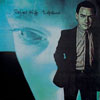ROBERT FRIPP : EXPOSURE
- Preface (with Daryl Hall)
- You Burn Me Up I'm a Cigarette (with Daryl Hall)
- Breathless
- Disengage (with Daryl Hall & Peter Hammill)
- North Star (Daryl Hall)
- Chicago (with Daryl Hall & Peter Hammill)
- NY3
- Mary (Terre Roche)
- Exposure
- Häaden Two
- Urban Landscape
- I May Not Have Had Enough of Me But I've Had Enough of You (with Peter Hammill)
- First Inaugural Address to I.A.C.E. Sherborne House
- Water Music I
- Here Comes the Flood (Peter Gabriel)
- Water Music II
- Postscript
Label : E.G. Records
Release Year : 1979
Length : 43:19
Review (AllMusic) : Conceived as the third part of an MOR trilogy that included Peter Gabriel's second album and Daryl Hall's Sacred Songs, Exposure is concerned with a marketplace that Fripp saw as hostile to experimentation and hungry for product. Strangely, then, Exposure is one of his most varied and successful rock albums, offering a broad selection of styles. "Water Music I and II" is pure Frippertronics; "Disengage" and "I May Not Have Had Enough of Me But I've Had Enough of You" are angular, jagged rock like he would make with the reformed King Crimson; "North Star" is a soulful ballad led by Daryl Hall on vocals, and a less bombastic version of "Here Comes the Flood" with Peter Gabriel singing makes a melancholic ending. Peter Hammill, Terre Roche, and Narada Michael Walden also add vocals to a pleasant experiment in pop, Fripp style.
Review (Wikipedia) : Exposure is the debut solo album by guitarist and composer Robert Fripp. Unique among Fripp solo projects for its focus on the pop song format, it grew out of his previous collaborations with David Bowie, Peter Gabriel, and Daryl Hall, and the latter two singers appear on the album. Released in 1979, it peaked at No. 79 on the Billboard Album Chart. Most of the lyrics were provided by the poet and lyricist Joanna Walton, who was later killed on Pan Am Flight 103. After terminating the first run of King Crimson in 1974, studying at the International Academy for Continuous Education through 1975-1976 and assisting Peter Gabriel in both studio and stage capacities, Fripp moved in 1977 to the Hell's Kitchen neighbourhood of New York City. New York was then a centre of punk rock and what would come to be known as new wave, and Fripp became part of the scene, playing and recording with Blondie and the Roche sisters, absorbing the sounds of the active downtown music scene. He envisioned a new approach, and incorporated elements of these NYC experiences into his current palette, including "Frippertronics", the tape-delay/looping technique he had developed with Brian Eno. At Eno's invitation, Fripp performed on David Bowie's "Heroes" single and album in 1977. Originally, Fripp envisioned Exposure as the third part of a simultaneous trilogy also comprising Daryl Hall's Sacred Songs and Peter Gabriel's second album aka Scratch, both of which Fripp contributed to and produced. Fripp's aim with the trilogy "was to investigate the 'pop song' as a means of expression. I think it's an incredibly good way of putting forward ideas. I think it's a supreme discipline to know that you have three to four minutes to get together all your lost emotions and find words of one syllable or less to put forward all your ideas. It's a discipline of form that I don't think is cheap or shoddy". The album was to be originally titled The Last Great New York Heartthrob and feature a track list configuration different from that of the final release. Hall's management and label resisted the project, fearing the music would damage Hall's commercial appeal, insisting as well that Exposure be equally credited to Hall, initially Fripp's main vocalist. Fripp instead used only two Hall vocals on his album, substituting Peter Hammill and Terre Roche in various places. The trilogy did not work out as intended, although all the albums were released. "Urban Landscape" appears on the Hall album, as does "NYCNY" ("I May Not Have Had Enough of Me but I've Had Enough of You", with different lyrics written by Hall). The Gabriel record also features a version of "Exposure". "Here Comes the Flood" had previously appeared with a prog-rock arrangement on Gabriel's first album, but Gabriel disliked the production, and created a simpler rendition of the song for Exposure. Fripp stated in the liner notes that Exposure "is indebted to all those who took part in the hazardous series of events culminating in this record, and several who do not appear but who helped determine the final shape: Tim Cappella, Alirio Lima, Ian McDonald and John Wetton". The version of the album that was released, after the changes and compromises that had to be made, was reconceptualized as part of a new trilogy, "The Drive to 1981", marking the beginning of three-year campaigns by Fripp as a professional musician, which would include an album of Frippertronics and one of "Discotronics", to be released between September 1979 and September 1980. Both album concepts were released together as God Save the Queen/Under Heavy Manners, with each concept getting its own followup-The League of Gentlemen for Discotronics and Let the Power Fall for Frippertronics, making for a five-step trilogy. The end of The Drive to 1981 marked the beginning of "the incline to 1984", Fripp's tenure with a reformed King Crimson, originally intended as Discipline. Fripp's tour to support Exposure was strictly a solo tour, utilizing only his own electric guitar and Frippertronics, and included then unorthodox rock music venues such as restaurants and retail outlets.
